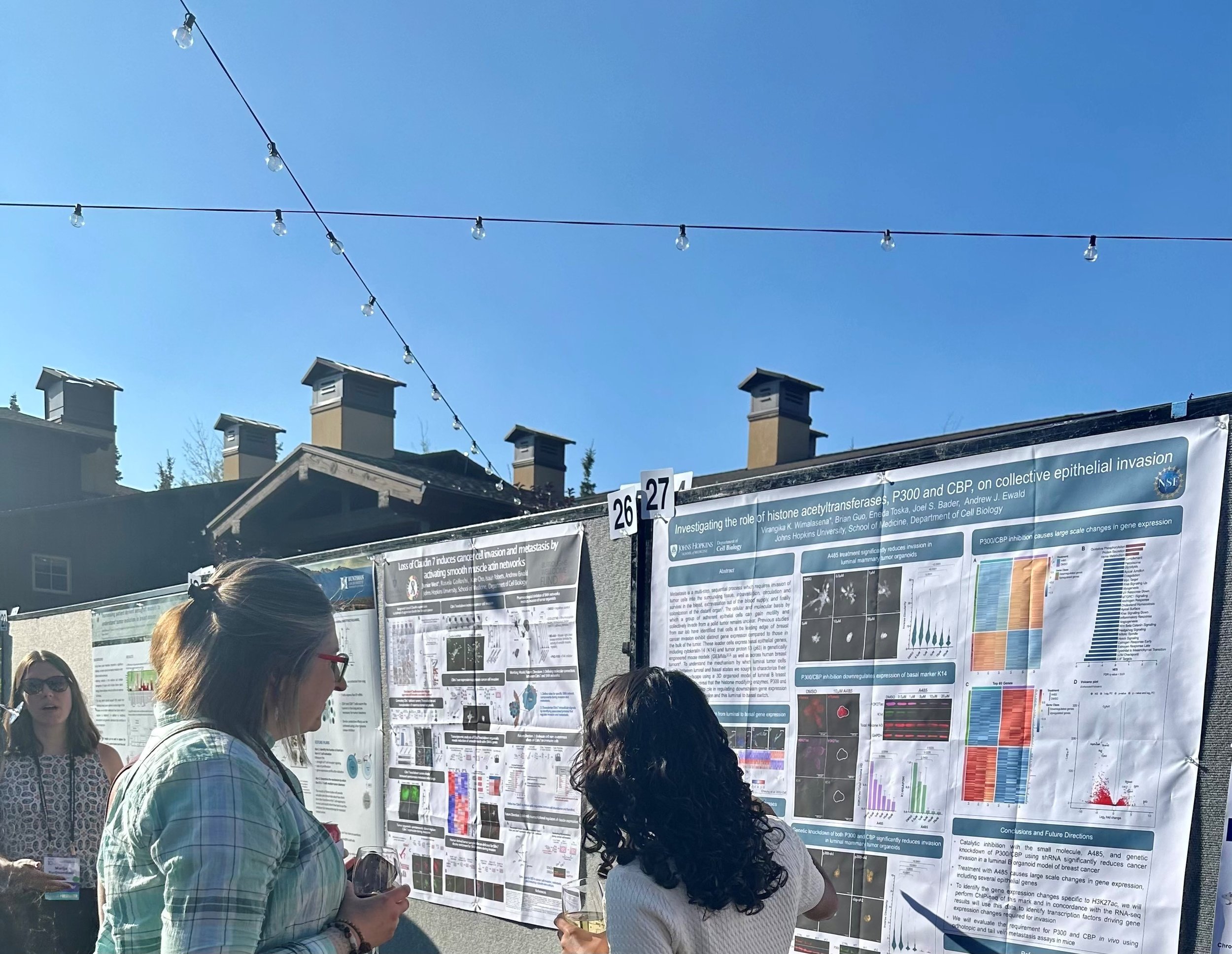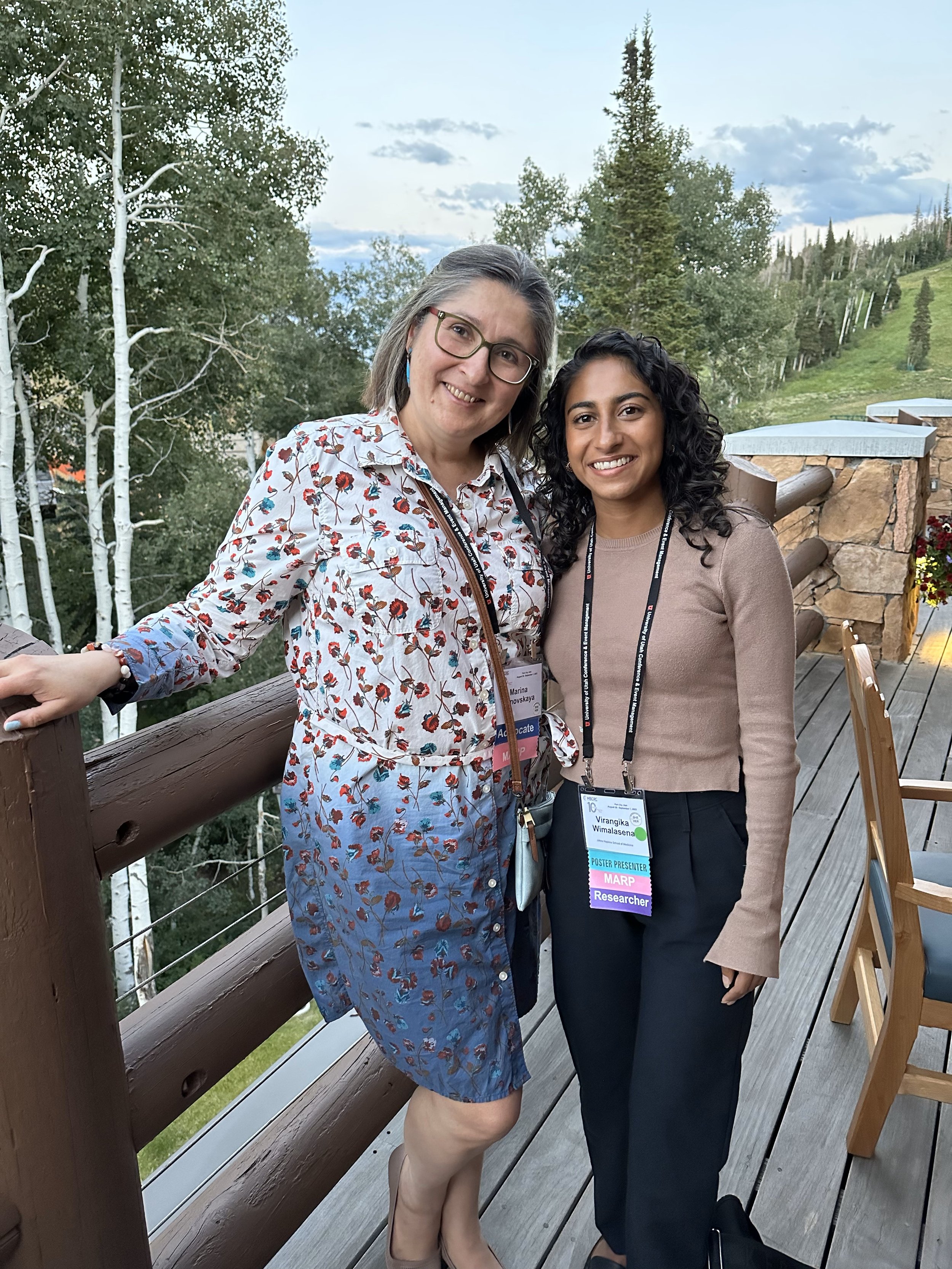MARP 2023: Marina and Virangika
Marina Ivanovskaya, Advocate and Virangika Wimalasena, Researcher
As a patient advocate, I went to the Metastatic Breast Cancer Research Conference by Theresa’s Research Foundation with the goal of learning how to communicate more productively with researchers and potentially find one to work with in the future. I think it is very important to convey the message that patient advocates must be actively included in every step of research, starting even with basic science breast cancer research. Basic science research often forms the foundation for translational research and the development of new treatments. Collaboration with patient advocates can ensure that promising discoveries in the basic sciences are rapidly translated into clinical trials and potential therapies.
MBCRC has put forth an incredible effort to ensure that patients’ voices and perspectives of those living with breast cancer are heard. This assures that research priorities and outcomes are aligned with the real-world needs of patients. We can advocate for the rapid translation of promising research into effective treatments and interventions. The collaboration between patient advocates and researchers is essential for ensuring that cancer research is patient-centered, ethically conducted, and effectively translated into improved patients’ lives and survival.
Therefore, I believe it is important for researchers to know how to communicate in lay terms with patient advocates and with the public in general. When I met Virangika I asked her “Why are you doing your research?” “How will it help people with metastatic breast cancer live longer with a good quality of life? She explained to me that breast cancer metastasis is a multi-step, sequential process which requires the normal cells that comprise the mammary gland to transform into cancerous cells. These abnormal cells must gain the ability to grow, invade into the surrounding breast tissue, migrate into blood vessels, circulate, and survive in the blood, exit the blood supply, and then continue to grow in a distant organ. The precise biological underpinnings of the ability for these adhesive cells to break away from the primary tumor, gaining motility, and invading through the connective tissue remains poorly understood. With the goal of understanding this process, previous studies from her lab have identified that these cells that begin to leave the primary tumor express different genes than those that remain at the bulk of the tumor across both mouse models and human breast tumors. To understand this switch in gene expression she is interested in characterizing the non-mutational changes required. Specifically, she is investigating the enzymes that regulate the accessibility of DNA and how they may play a central role in regulating downstream gene expression networks required for breast cancer invasion and metastasis.
To do this, her lab uses 3D organoid models of breast cancer. These 3D organoids allow them to observe each cell’s movement as a function of time and space, better allowing them to understand the physiologically relevant process of invasion that happens in the human body. By modeling invasion and metastasis more accurately, they can garner information about the key molecular drivers that can serve as novel therapeutic targets with less off-target toxicity in the hopes of benefiting patients.
Ultimately, we both greatly benefitted from the opportunity to share each of our perspectives - mine as a patient advocate, and hers as a researcher. Meeting through the MBCRC Advocate Researcher Program (MARP) has allowed us both to consider the other’s point of view and helps keep the dialogue between us open. In the future, we hope to stay in contact and have planned for a tour of Virangika’s lab. The opportunity to connect with each other at MBCRC was invaluable and programs like MARP will hopefully help shift the scientific field more towards the inclusion of patient advocates in all aspects of scientific research.


